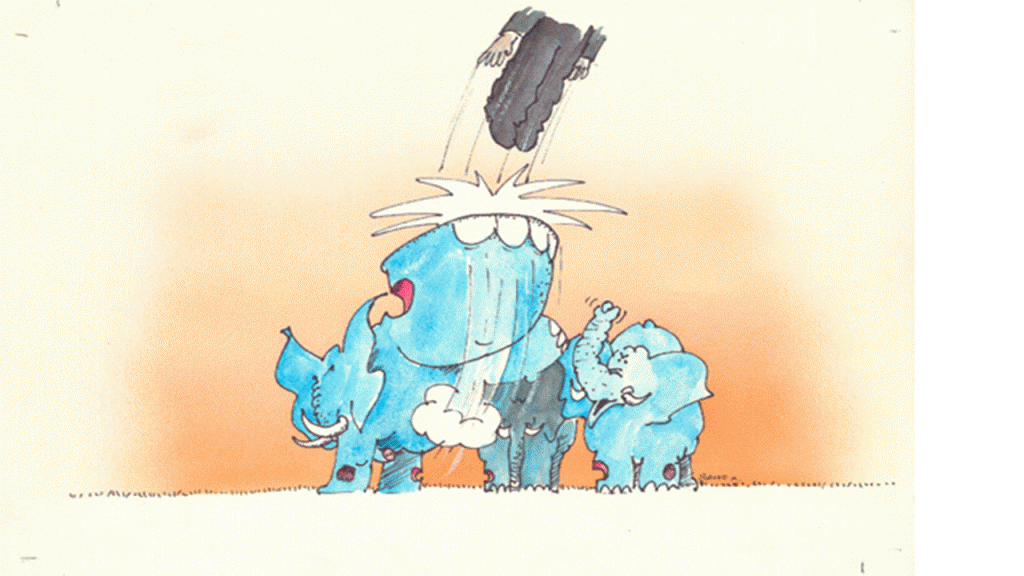The Elephant Technique – How to Get Things Done (Productivity Series)
Learning to deal with complex tasks, which will help you achieve your long-term strategic goals and vision. This article is about a very simple mindset tip. This productivity technique will help you to focus your energy every day of the week, month and year.
This is the latest installment in our 2015 feature about Productivity. If you have missed any of the previous articles, or would just like to catch up on anything before reading this article you can use the following links: For the introduction to the article series click here, in the first article we delved into goal setting, and thereafter we had two articles devoted to prioritisation (click here for part 1 and here for part 2).
Q: How do you eat an elephant?
A: One small bite at a time
In this week’s article we will look closer at another technique developed by Claus Møller in the 1970s as part of his Time Manager courses. The question above was one he used to ask of his audiences to get them to understand the importance of what needs to get done in order to achieve your bigger goals in life (or your box 2 tasks in relation to the Eisenhower Matrix).
Below you will see a few illustrations which answer the age old conundrum of how to eat an elephant.
Trying to eat a whole elephant can seem overwhelming
You must break it into bite-size pieces in order to succeed – and it will take a long time to finish
If you try to bite off more than you can chew – you might just get a kick from the elephant
What does this mean?
Reflectively, in order to achieve large goals (e.g. learning a new language or launching a new product) it is often necessary to break the tasks into smaller, more manageable (i.e. bite size) chunks. This is what the elephant technique is all about.
The elephant technique is useful for tasks, which can only be dealt with through ongoing effort over a prolonged period of time.
When you are dealing with elephant tasks it can put a real dampener on your desire to try and solve it. Especially when you face what might seem like insignificant results for each little part of the task (e.g. learning 10 words in a foreign language). This will often lead to it being postponed or given a low priority in your short-term planning. However, you will never learn a new language if you don’t dedicate the time to it.
Therefore it is important that you set aside time every day, week, and month for these developmental tasks. They must take priority over and above your routine or burning issue tasks.
Just think about it – if you learn 10 words in a foreign language every day for the next 2 years, you would have a vocabulary of almost 7,500 words. This would be more than enough to hold a decent conversation in most languages. You would be well on your way to achieving your goal – freeing up more time for the next development or box 2 task…
Thanks to Claus Møller for allowing the use of the above images.
Please feel free to drop us a line through our contact form with any feedback you may have on this article – or any aspect of productivity you may wish to discuss. You can also join our Honeydew Health discussion group on LinkedIn here to discuss productivity and other absence management issues.
If you would like to find out how absence at work relates to productivity (both for the absentee and the ones at work), please feel free to give us a call on +44 (0)20 3286 2133 or use the contact form.



